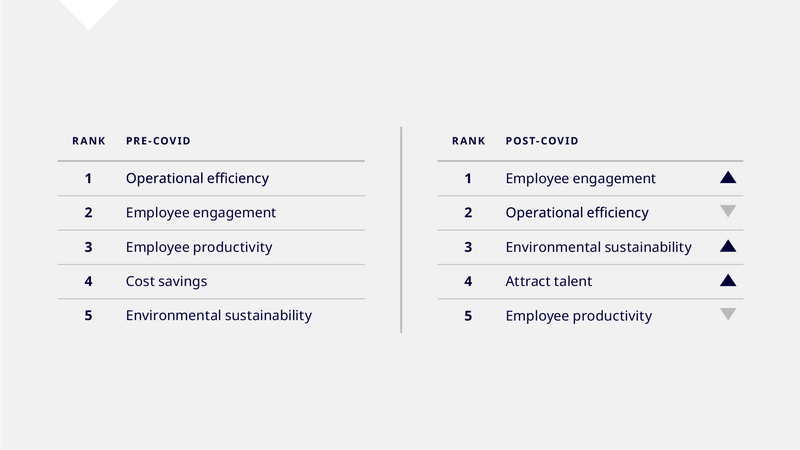Many companies are downsizing their real estate portfolio and changing the design of their offices to better reflect the needs of their people. A growing emphasis on offering a variety of collaboration spaces, attractive common areas, and bookable workstations, from individual quiet rooms to larger places for meetings and town halls, signals how employers are reshaping their spaces to prioritize a flexible and employee-focused culture. With so many able to do their heads-down work from home, the workplace should provide an exceptional opportunity for people to connect and communicate with their colleagues—if the office is an enjoyable place to be, employees will want to be there.
Workplace experience managers are key for valuable placemaking, as they curate relationships between a company, their workers, and the local community. They drive connections with local businesses and create experiences for employees they can’t get elsewhere, activating the space in sustainable and cost-friendly ways. Strategic partnerships between an organization and experts in workplace experience and facility management are necessary to provide a place where people can thrive. One aspect of this partnership includes embedding with employee resource groups to not only give workplace experts more information on the culture of the business, but also to provide resources to deliver better services, amenities, and events. These efforts, in conjunction with data collected from digital tools like workplace mobile apps, inform experience managers on how to best curate their approach, boosting effectiveness both digitally and in terms of service delivery.
Although an emphasis on employee or occupant experience is rising in importance, workplace infrastructure remains essential to provide the right built environment for people to thrive. Alignment between what workers need and what the space delivers drives the success of hybrid work plans. A productive relationship between an organization and their FM and experience partners allows leaders to make informed decisions with fewer worries about cultivating a compelling office culture.

